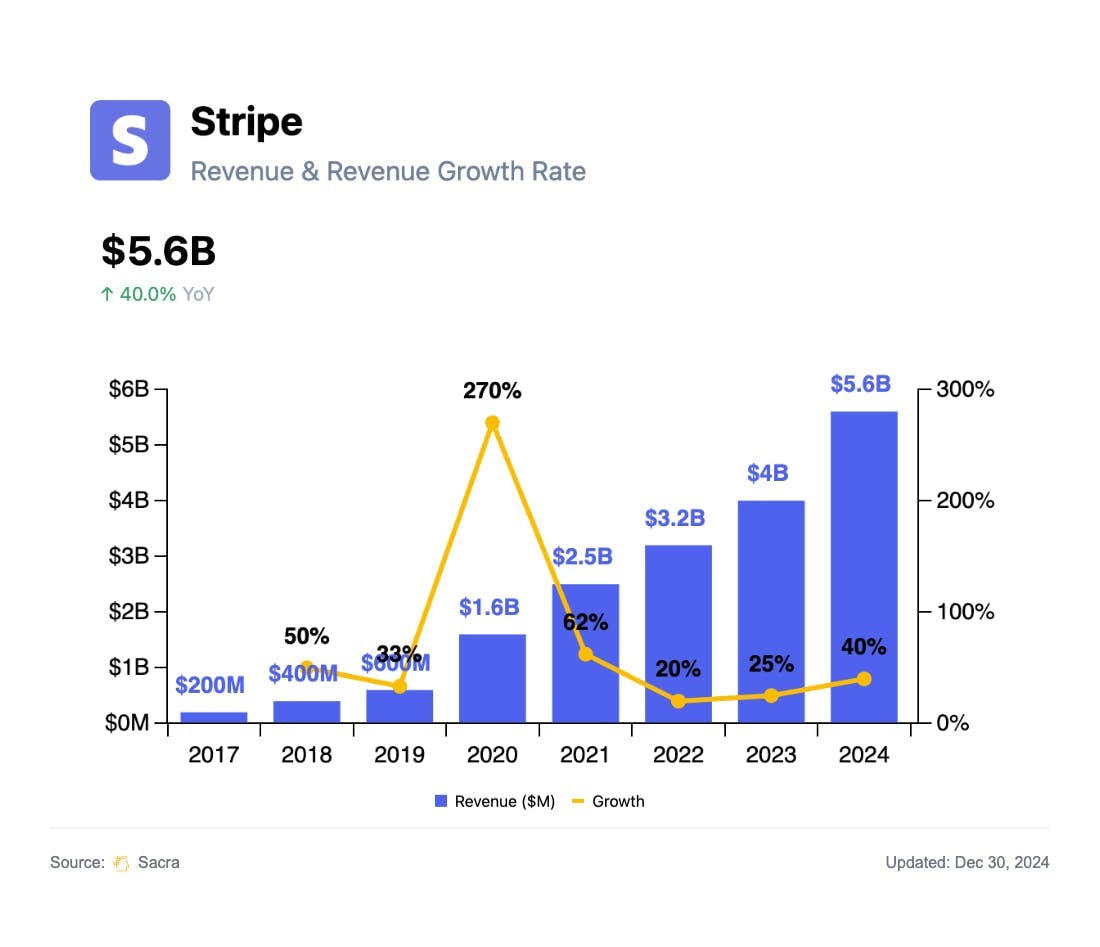Stripe vs Apple
 Jan-Erik Asplund
Jan-Erik Asplund
TL;DR: On April 30th, a federal judge barred Apple from impeding external payment links in iOS apps and prohibited charging commissions on purchases made outside of Apple. Now, the door is open for Stripe to capture a slice of the $90B+ in payment volume previously locked into Apple's ecosystem. For more, check out our full report and dataset on Stripe, and our full report and dataset on Epic Games.

The legal fight over Apple’s control of App Store payments began in 2020, when Epic Games added an unauthorized payment method to Fortnite and Apple responded by removing the app.
Five years later, Judge Yvonne Gonzalez Rogers has ruled that Apple must let developers use external payments without fees—effectively unbundling App Store billing from iOS distribution.
Key points via Sacra AI:
- Judge Gonzalez Rogers found Apple "willfully violated" her original 2021 injunction—which prohibited Apple from banning apps from linking to external payment options—by imposing a 27% commission on such purchases, ruling that "effective immediately" Apple cannot charge any fee for off-app purchases or impede developers from steering users to external payment options.
- For Epic Games, its re-platforming in the Apple App Store—without having $105 million in commissions to Apple (2020) as a drag on profitability, on top of its payments to core console and PC platform providers Sony (Playstation), Microsoft (Xbox & Windows Store) and Nintendo (Switch)—gives it access to the 1.4 billion in iOS users, which strengthens the Fortnite metaverse where cross-platform accessibility drives the network effect of connecting with all your friends regardless of which device they own.
- Stripe, with its iOS SDK and $1.4T in yearly payments volume, stands to benefit the most from $90B in App Store volume freed up by this ruling—with Stripe Checkout enabling a flow where users follow an external link in an app, complete payment in the browser (with Apple Pay as an option), and get redirected back to the app via universal links, a flow that costs developers 3% of the transaction instead of Apple's 30%.
For more, check out this other research from our platform:














